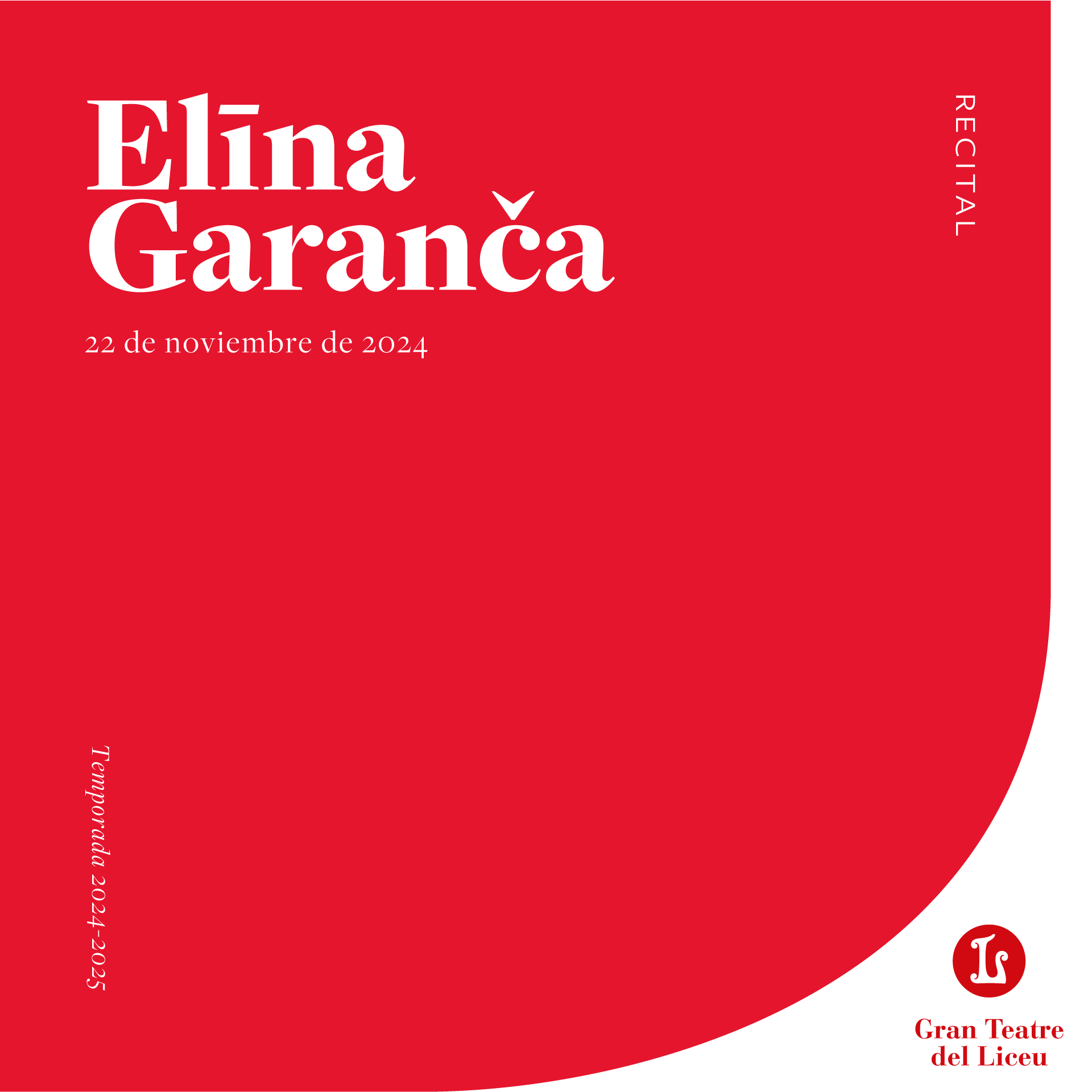Elīna Garanča is considered the best mezzo-soprano in the world
With a program featuring songs and arias by 19th-century European Romantic composers.
Elīna Garanča, born in Riga (Latvia), is regarded as the world’s top mezzo-soprano.
After her recent successes—debuting as Kundry in Wagner’s Parsifal at Bayreuth, performing Princess Eboli at the Teatro alla Scala season opening, and taking on Amneris in Aida in Calixto Bieito’s production in Berlin—she arrives at the Liceu to deliver her recital in peak form.
With a captivating, beautiful timbre, seamless transitions across registers, a velvety center, resonant lows, and piercing highs, the Latvian singer immerses herself in each role, embodying the essence of the music. Always captivating with her voice and inflections, she enchants with delicate filigree, sensuality, or languid phrasing.
Elīna Garanča is regularly invited to the Metropolitan Opera, the Vienna State Opera, ROH Covent Garden, Salzburg Festival, Festspielhaus Baden-Baden, Bavarian State Opera in Munich, Deutsche Oper Berlin, Carnegie Hall in New York, and Wigmore Hall in London, among other prestigious venues worldwide.
Garanča, who made her debut at the Gran Teatre del Liceu in 2006 singing Sesto (La clemenza di Tito) as a replacement for Joyce DiDonato, later returned to perform Seymour in Anna Bolena and Mozart’s Requiem at the Montserrat Basilica during the COVID-19 pandemic. She now presents a recital featuring songs and arias by European Romantic composers from the 19th century, along with some zarzuela romances, a genre for which she has a strong affinity.
With an enviable instrument—homogeneous, velvety, and of great beauty—Garanča is set to captivate the audience throughout the evening.
With the support of:

Dates & tickets
| Turn E |
- Part I 50 min
- Pause 30 min
- Part II 40 min

Hand program
Program
Johannes Brahms (1833 – 1897)
Liebestreu, Op. 3 No. 1
Geheimnis, Op. 71 No. 3
Wir wandelten, Op. 96 No. 2
O wüsst‘ ich doch, Op. 63 No. 8
Alte Liebe, Op. 72 No. 1
Die Mainacht, Op. 43 No. 2
Von ewiger Liebe, Op. 43 No. 1
Hector Berlioz (1803 – 1869)
"D’amour l'ardente flamme" (The Damnation of Faust)
Gabriel Fauré (1845 – 1924)
Romances sans paroles, Op. 17 No. 3 (Malcolm Martineau, piano)
Camille Saint-Saëns (1835 – 1921)
"Mon coeur s’ouvre à ta voix" (Samson and Delilah)
Charles Gounod (1818 – 1893)
"Me voici seule enfin!... Plus grand dans son obscurité" (The Queen of Sheba)
INTERMISSION
Pyotr Ilyich Tchaikovsky (1840 – 1893)
"Da, chas nastal!" (The Maid of Orleans)
Sergei Rachmaninoff (1873 – 1943)
Ne vier mne, drug! / (Do Not Believe Me, Friend!), Op. 14 No. 7
Son (A Dream), Op. 8 No. 5
O, ne grusti (Oh, Do Not Be Sad), Op. 14 No. 8
Vessennie vodi / (Spring Waters), Op. 14 No. 11
Isaac Albéniz (1860 – 1909)
Tango, Op. 165 No. 2 (Malcolm Martineau, piano)
Ruperto Chapí (1851 – 1909)
"Cuando está tan hondo" (El barquillero)
Georges Bizet (1838 – 1875)
"Habanera" (Carmen)
Ruperto Chapí (1851 – 1909)
"Carceleras" (The Daughters of Zebedee)





